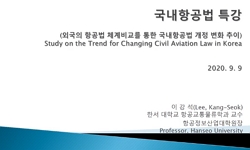산업의 과학화에 따라 건설사업의 규모가 대형화, 복잡화되면서 건설사업의 체계적인 관리로 효율성을 극대화 할 수 있는 방법이 연구되었고, 건설사업관리 (이하CM)는 이를 위한 방법으로 ...
http://chineseinput.net/에서 pinyin(병음)방식으로 중국어를 변환할 수 있습니다.
변환된 중국어를 복사하여 사용하시면 됩니다.
- 中文 을 입력하시려면 zhongwen을 입력하시고 space를누르시면됩니다.
- 北京 을 입력하시려면 beijing을 입력하시고 space를 누르시면 됩니다.
국내 중소건설업체의 CM화 전략 = Strategic study for CM development for medium & small sized construction companies in Korea
한글로보기https://www.riss.kr/link?id=T9645240
- 저자
-
발행사항
서울 : 東國大學校 産業技術環境大學院, 2002
-
학위논문사항
학위논문(석사) -- 동국대학교 산업기술환경대학원 , 건축공학 전공 , 2003. 2
-
발행연도
2002
-
작성언어
한국어
- 주제어
-
KDC
540 판사항(4)
-
발행국(도시)
서울
-
형태사항
vi, 92p. : 삽도 ; 26cm.
-
일반주기명
참고문헌: p. 79-81
- DOI식별코드
- 소장기관
-
0
상세조회 -
0
다운로드
부가정보
국문 초록 (Abstract)
산업의 과학화에 따라 건설사업의 규모가 대형화, 복잡화되면서 건설사업의 체계적인 관리로 효율성을 극대화 할 수 있는 방법이 연구되었고, 건설사업관리 (이하CM)는 이를 위한 방법으로 학문적, 제도적인 체계를 이루어 나가고 있다. 국내에서는 1997년에 CM의 제도화가 이루어졌으며 제도적 활성화를 위한 기반조성의 단계에 있다. 그러나 제도화 이전에 수반되어야할 계획과 절차의 준비 부족으로 CM사업의 개념이 건설산업 전반에 올바르게 정립되지 않고 있으며 체계적 확립이 아직 미비한 상태에 있다. 위와 같은 배경을 바탕으로 본 연구는 국내 중소건설업체의 CM사업 수행현황을 분석하면서 전문적인 CM사업의 전개와 다양한 사업에서의 적용 등 CM의 활성화를 유도하기 위한 전략적 제안을 하게 되었다.
우리나라에서의 CM은 「건설사업관리」라는 명칭으로 쓰여지고 있으며 건설산업 기본법령에는 『건설공사에 관한 기획·타당성조사·분석·설계·조달·계약·시공관리·감리·평가·사후관리 등에 관한 관리업무의 전부 또는 일부를 수행하는 것을 말한다.』와 같이 규정되어 있다. CM은 크게 학문적 개념과 계약적 개념의 두 가지 의미로 구분하여 논의 될 수 있으며 건설사업의 각 단계에 따라 프로젝트 관리, 원가관리, 일정관리, 품질관리, 안전관리 등으로 나누어지며 관리기능에 따라서도 조직차원, 공사차원, 작업차원 등 그 역할과 업무내용이 다양한 관점으로 세분화된다. 이를 종합하여 정의하자면 CM은 『건설사업의 효율적 수행을 위한 사업 전반에 이른 전문적 관리시스템이며 이를 적용하기 위한 계약 방법의 일종』이라고 할 수 있을 것이다.
CM은 복잡한 대형 공공사업의 전문적 수행을 위해 국내에 처음 도입되어 민간건설사업인 재건축과 리모델링 사업, 초고층 빌딩사업 등에 적용되고 있으며 최근에는 중소규모 건설사업 등에도 적용된 사례를 볼 수 있다. 그러나 실질적으로 중소규모 건설사업을 하는 다수의 중소건설업체들은 CM에 대한 인식과 이해의 부족, 다양한 적용 사례의 부족 등 CM사업을 적용하기에 적지 않은 어려움이 있어 중소규모 건설시장마저 대형 건설업체들에게 넘어갈 위기에 놓이지 않을까 하는 우려도 하고 있다. 하지만 중소건설업체들이 CM을 통해 건설사업의 전문성을 갖추게 된다면 건설산업의 새로운 시장을 확보와 기업의 가치상승 등 긍정적인 측면에서의 효과도 얻을 수 있을 것이다.
현재 CM사업을 수행 중인 중소건설업체들은 주로 재건축사업과 리모델링 사업에 CM을 적용하고 있는데 재건축 사업은 민간에 의해 시행되는 사업이기 때문에 각 부분에서 마찰과 의견대립이 일어나는 등 사업진행상의 어려움이 많은 분야이다. 이를 해결하기 위한 방법으로 CM업체는 전문성이 부족한 재건축 조합의 대리자의 역할을 수행하며 건설의 기획, 설계, 시공, 유지관리까지의 단계를 종합적으로 일관성 있게 관리할 수 있도록 하고 있다. 그리고 리모델링 사업은 건축물의 구조적, 기능적, 미관적, 환경적인 성능과 에너지의 효율성을 개선하여 건물의 가치 향상과 경제성을 높이는 일련의 활동으로 전설사업의 경험축적과 새로운 기술의 전문성을 요구하는 점에서 CM을 통한 체계적 관리가 필수적인 사업분야라고 할 수 있다.
이처럼 CM은 다양한 건설사업에 적용되면서 건설과정의 체계화를 통한 비용절감과 공기 단축 등 여러 가지 측면의 이익을 낳고 있지만 각 업체의 조건과 특성에 맞도록 CM 체계를 확립한 업체의 사례는 많지 않다. 특히, CM의 인식전환을 위한 발주자 교육 및 홍보, CM사업에 관한 연구개발, 전문적 능력 향상을 위한 직원교육이 크게 부족한 부분으로 나타나 이를 위한 대안을 마련하는 것이 시급하다. 따라서 본 연구는 중소건설업체들의 원활한 CM사업의 전개를 위한 전략을 다음과 같이 제안하였다.
Ⅰ. 조직체계기반의 완성 : 조직체계기반의 완성은 기업목표 및 vision 설정, 기업이미지 재고, 경영자의 경영능력 재고, 조직의 정비를 포함하며 기업의 CM사업 추진을 위한 기본적 단계이다.
Ⅱ. CM 인식기반의 전환 : CM 인식기반의 전환은 CM사업의 마케팅 전략 수립, 연구개발 팀의 구성, 전문인력의 양성 등으로 구성되어 CM사업의 인식과 이해 기반을 확장하기 위한 단계이다.
Ⅲ. 산업구조 및 동향 분석 : 산업구조 및 동향 분석은 시장분석 및 특화 과정, 금융관리의 전문성 구축의 내용으로 구성되어 있으며 이 단계는 건설산업의 환경 분석에 관련한 정보를 기업의 지식으로 체계화하는 과정이라 할 수 있다.
Ⅳ. 기술 및 관리능력의 확대 : 기술 및 관리능력의 확대는 업무 프로세스의 정립, IT분야와의 연계성 강화, 외부 기업과의 기술 제휴를 구축하는 단계로서 건설사업의 실질적인 과정에 있어 요구되는 기술적 측면을 강화하기 위한 방법을 제안하였다.
Ⅴ. 사업결과의 가치강화 : 사업결과의 가치강화는 사업 평가와 분석, 사업정보관리의 체계화를 포함하며 사업의 결과를 기업의 자산으로 축적하기 위한 과정을 정립하는 단계이다.
위의 내용은 지식경영의 프로세스를 적용한 CM화 전략으로서 중소건설업체의 CM사업 역량의 강화를 돕는 단계별 과정이다. 이것은 중소건설업체의 CM사업 추진과 경영개선을 위한 제안이며 이 내용을 바탕으로 각 업체의 특성에 맞도록 수정 보완한 프로그램을 사업에 적용한다면 중소건설업체의 경영개선은 물론, 건설산업 전반의 체계화와 전문성을 확충할 수 있는 기회로 작용하게 될 것이다.
다국어 초록 (Multilingual Abstract)
As the sizes of construction business become large-scaled and complicated with the scientific trend of industry, the studies to maximize the efficiencies through systematic management of construction business have been made, and in this context Constr...
As the sizes of construction business become large-scaled and complicated with the scientific trend of industry, the studies to maximize the efficiencies through systematic management of construction business have been made, and in this context Construction Management (hereinafter called as "CM") has been formed as a scholastic and institutional system. In Korea CM was institutionalized in 1997, and is on the verge of a basement construction for institutional activation. However, due to lacks of the plans and procedures preceded by institutionalization, the concept of CM has not yet settled correctly in the overall construction industry and still systematic establishment is in an insufficient state. Under the backgrounds above, this study performed the analysis on the present status of CM business in domestic small construction companies, and suggests a strategic proposal to induce activation of CM including developments of specialized CM business, applications to various businesses, etc.
In our country, CM is called as Construction Project Management, and is specified in basic regulations of Construction Industry as "to perform all or part of management tasks related to planning, feasibility studies, analysis, designs, supplies, contracts, construction management, supervision, evaluation, post management, etc. concerning construction work". CM can generally be divided into two meanings: Scholastic concept, and Contractual concept. In the meantime, according to each stage of construction business, it can be divided into project management, cost management, schedule management, quality management, safety management, etc. Further, according to the management functions it can be subdivided into a variety of aspect in roles and job contents like organizational dimension, construction dimension, job dimension, etc. If defined in summary, CM can be said to be "a professional management system covering overall business aspects for efficient execution of construction business, and also a contracting method for its applications".
CM was initially introduced to our country for professional execution of complicated and large size public projects, which has now been applied to rebuilding and remodeling projects belonging to private construction business, and recently applied even to small and medium size construction projects. However, as most small construction companies have difficulties in applying CM business due to lacks of recognition/understanding on CM and diversified cases applied, there are anxieties about the risky proceedings that small construction market would be taken over by large construction companies. However, if small construction companies are equipped with expertise of construction business through CM, they could acquire positive effects such as grasp of new market, company value enhancement, etc.
Currently small construction companies are applying CM mainly to reconstruction and remodeling businesses. The reconstruction business, as executed by private parties, has lots of procedural difficulties like conflicts, opinion confrontations, etc. in each sector. To resolve such difficulties, a CM company is performing the roles of the representative of a reconstruction association, and help manage comprehensively and consistently every step of planning, designing, working, maintenance management. In the meantime, the remodeling business is an array of activities to enhance values and economies of the buildings through improving the structural/aesthetic/environmental performances and energy efficiency. Thus, viewing from the requirements of experience accumulation and new technology expertise, a systematic management by CM is supposed to be essential in the remodeling business.
As explained above, with applications of CM to diversified construction businesses several advantages including cost, delivery reductions have been realized, but cases of the companies which have established CM systems suitable to their conditions and features are not so many. In particular, as it proved that purchaser education and advertising for converting recognition on CM, research and development of CM business, staff education for improving professional abilities have been greatly insufficient, countermeasures to resolve these issues have to be arranged immediately.
Consequently, this study suggests the following strategy for smoothly development of CM business for small construction companies.
Ⅰ. Completion of organizational system basement: The completion of organizational system basement is a basic step to execute CM business of enterprises, which includes company target, vision setting-up, company image enhancement, management capability improvement, and organizational restructure,
Ⅱ. Conversion of CM recognition basement: The conversion of CM recognition basement, comprising marketing strategy setting-up, research and development team organization, specialty man power cultivation, etc., is a step to expand the recognition and understanding basement of CM
Ⅲ. Industry structure and trend analysis: The industry structure and trend analysis, comprising market analysis, specialized process, specialty construction of financial management, is a step which systemize the information related to the environmental analysis of construction industry into the knowledge of the enterprises.
Ⅳ. Expansion of the technology and management capability: The expansion of the technology and management capability is a step to set up job processes, to strengthen interrelationship with IT industry, and to construct technical collaboration with outside companies. A method to strengthen technical aspects required for the substantial process of construction business is proposed.
Ⅴ. Value reinforcement of business results: The value reinforcement of business results is a step to set up the process for accumulating business results as a company property, including business evaluation/analysis and systemization of business information management.
The above contents, as a strategy towards CM with applications of knowledge management process, are stepwise processes to help improve the capability of CM business of small construction companies. They are suggestions for CM business promotion and management improvement. When the programs suitably modified to the characteristics of each company are applied to the businesses, they will provide small construction companies with the opportunities to systemize overall construction industry and to expand specialty, as well as to improve management.
목차 (Table of Contents)
- 목차
- 표목차 = ⅰ
- 그림목차 = ⅱ
- 국문요약 = ⅲ
- 제1장 서론 = 1
- 목차
- 표목차 = ⅰ
- 그림목차 = ⅱ
- 국문요약 = ⅲ
- 제1장 서론 = 1
- 1.1. 연구의 배경 및 목적 = 1
- 1.2. 연구의 방법 및 범위 = 3
- 제2장 건설사업관리(CM)의 개요 = 5
- 2.1. CM의 정의 및 개념 = 5
- 2.1.1. CM의 발생배경 및 전개 = 7
- 2.1.2. 개념에 따른 CM의 분류 = 8
- 2.2. CM의 역할과 기능 = 10
- 2.2.1. 관리기능에 따른 CM의 역할 분류 = 13
- 2.2.2. 단계별 CM의 업무내용 = 14
- 2.3. 기존 연구의 고찰 = 16
- 제3장 CM의 국내도입과 중소건설업체의 주요사업 현황 = 18
- 3.1. CM의 국내도입과 적용 현황 = 18
- 3.2. 중소기업의 정의 및 중소건설업 현황 = 20
- 3.2.1. 중소건설업체의 CM사업 사례 = 24
- 3.2.2. 중소건설업체의 CM사업 유형 = 43
- 3.3. 중소건설업에서의 CM적용의 문제점 = 47
- 제4장 건설업에서의 지식경영과 CM = 49
- 4.1. 지식경영의 개념과 성공요인 = 49
- 4.1.1. 지식 요소와 지식경영의 개념 = 49
- 4.1.2. 지식경영의 성공요인 = 51
- 4.2. 중소건설업에의 지식경영 도입의 필요성 = 53
- 4.3. 지식경영과 CM의 상관관계 = 54
- 제5장 중소건설업체의 CM화 전략 = 56
- 5.1. 중소건설업체의 경영능력 분석 = 56
- 5.1.1. 경영능력기반의 평가 기획 = 56
- 5.1.2. 대상업체 분석 개요 = 59
- 5.1.3. 분석항목의 내용과 유추과정 = 60
- 5.2. 설문결과 및 분석 = 63
- 5.3. 중소건설업체의 CM화 전략 = 71
- 제6장 결론 = 76
- 참고문헌 = 79
- 부록1 = 82
- 부록1 설문서 = 82
- 부록2 건설사업관리자 사전자격심사(PQ)기준 (안) = 86
- 부록3 건설사업관리 수행능력 평가기준(안) = 87
- Abstract = 88
- 감사의 글 = 92












